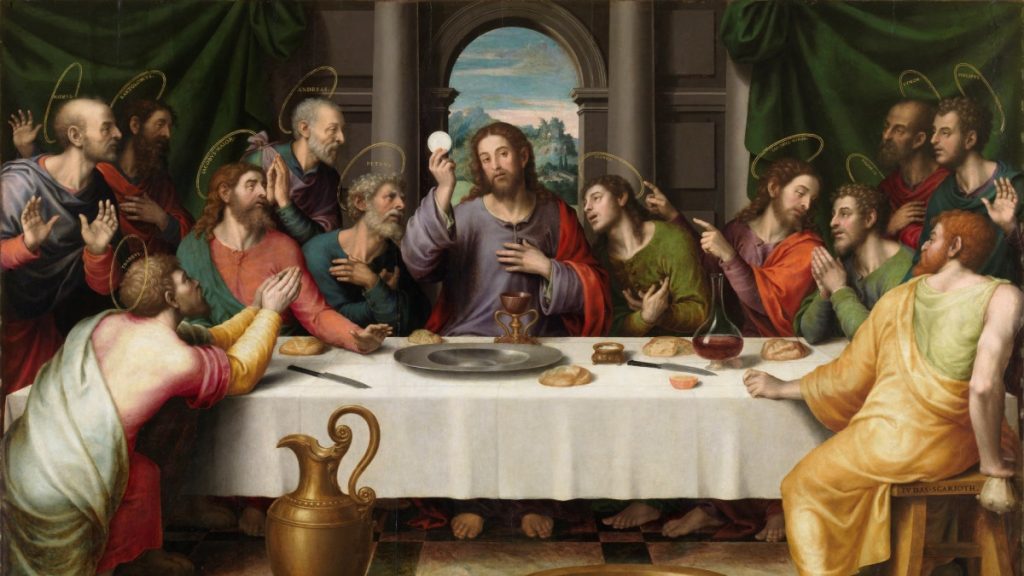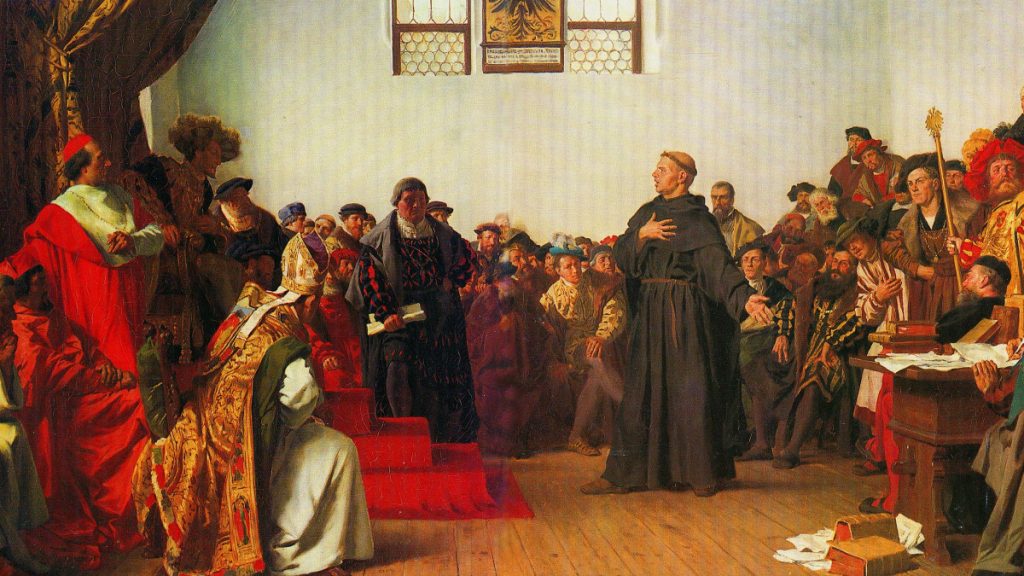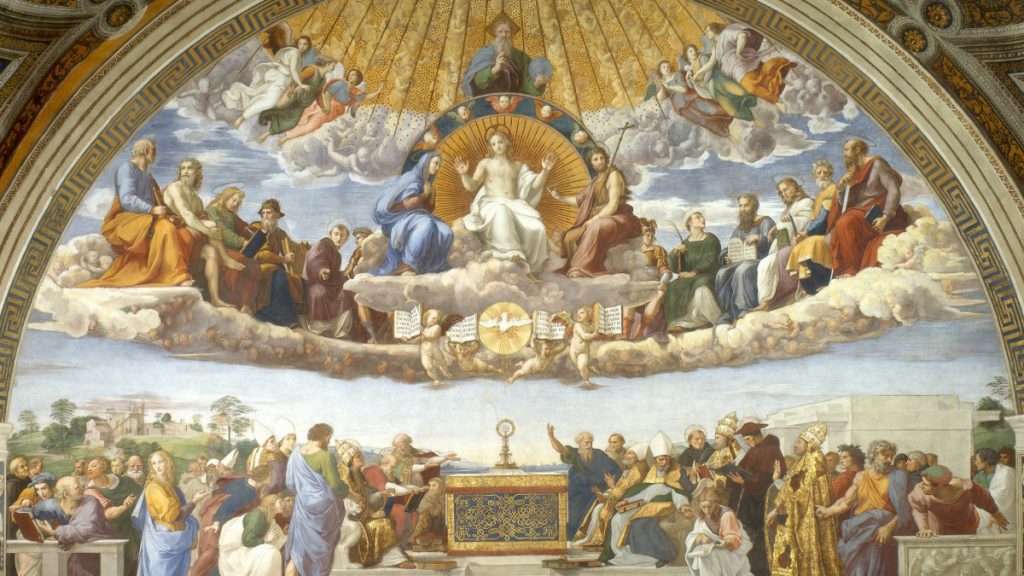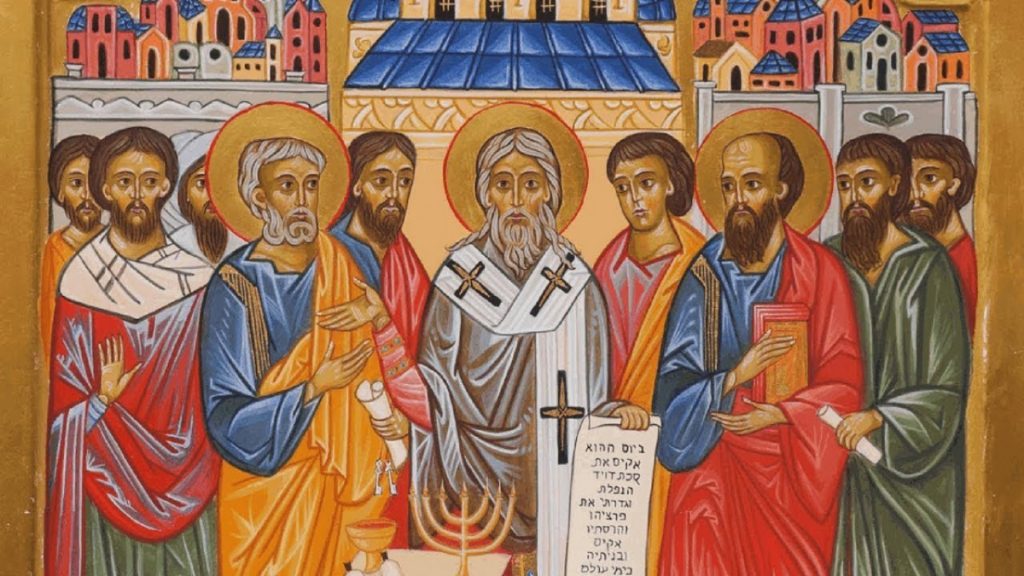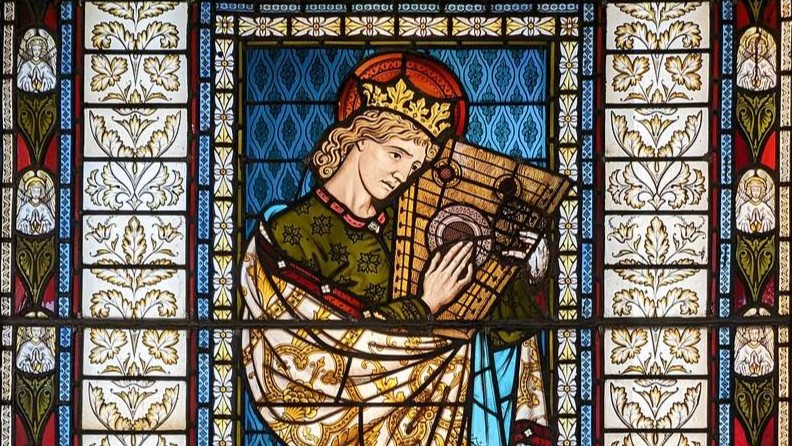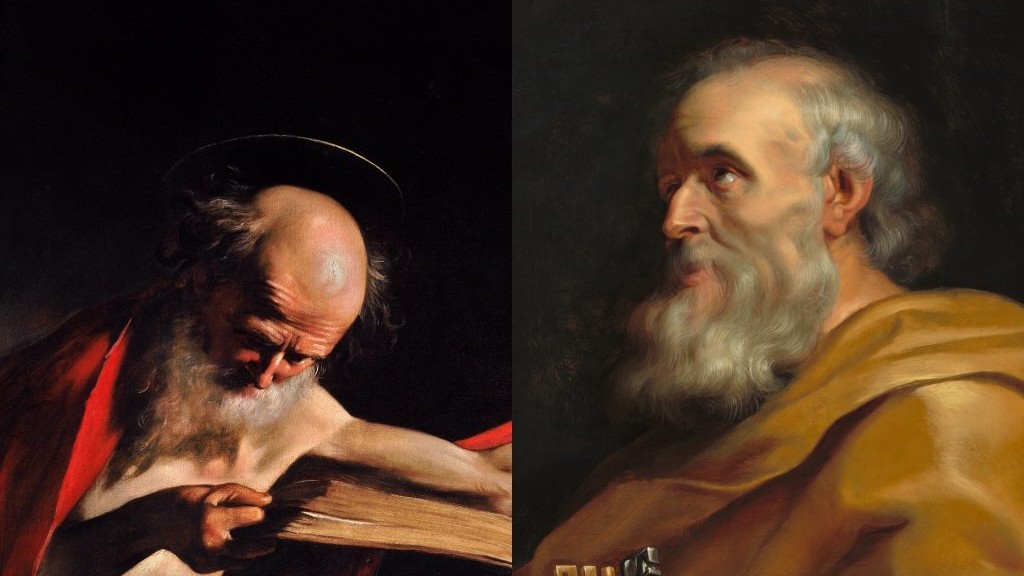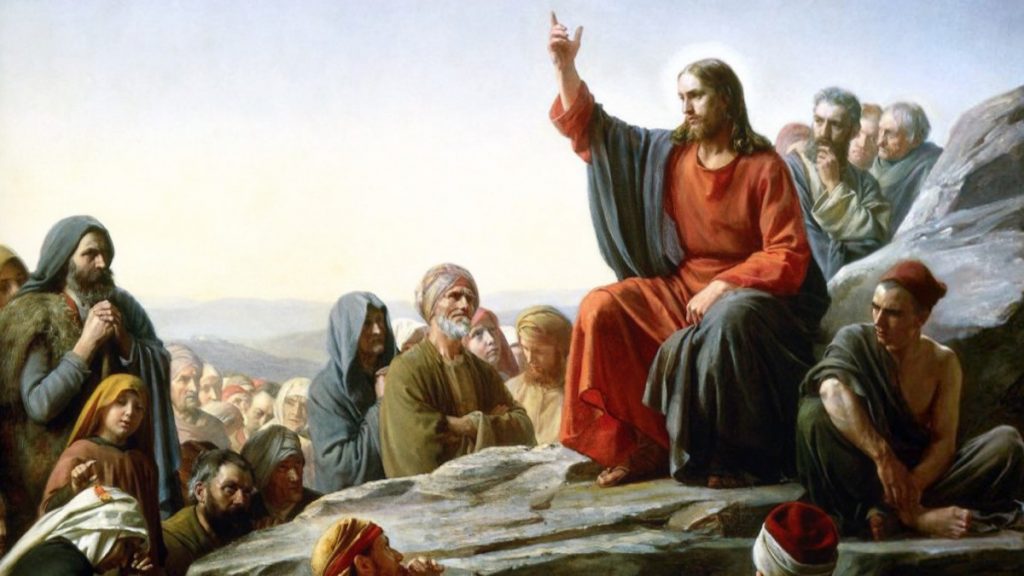(Updated August 14, 2025)
This Author Quote Archive collects pertinent quotes from the Church Father, St. Ephrem the Syrian.
Next to each quote are the Topic Quote Archives in which they are included.
This Quote Archive is being continuously updated as research continues. Quotes marked with “***” have not yet been organized into their respective Topic Quote Archives.
Treatises
St. Ephrem the Syrian, On the Antichrist1
The most despicable one will come as a robber, in a manner such as to deceive all; he will come as one humble, meek, a hater (as he will say himself) of unrighteousness, despising idols, giving preference to piety, good, lover of the poor, beautiful to an extreme degree, constant, gracious to all. He will especially esteem the Jewish race, since the Jews will await his coming.
But together with all this he will work signs and miracles and dreadful spectacles with great authority; and he will use sly means to please all, so that the people will quickly fall in love with him. He will not accept bribes, speak with anger, show a gloomy countenance, but with a decorous exterior he will take to deceiving the world, until he has become king… 123 | 127
Many of the saints, those who can be found at the time, at the coming of the execrable one [Antichrist], will shed rivers of tears before the holy God, that they may be delivered by Him from the serpent…And this will be granted them from the holy God; His grace will lead them to the place determined for this, and they will save themselves, hiding in precipices and caves, not seeing the signs and terrifying spectacles of Antichrist because the coming of Antichrist will be made known without difficulty to those who have knowledge. But to him who has his mind on the affairs of this life and loves the earthly, this will not be comprehensible; for he who is always tied to the matters of this life, although he even hear, he will not believe, and will despise him 127 | 128 who says these things. But the saints will be strengthened, because they scorned every care for this life…
The earth and the sea will weep because the sound of the psalms and prayers will suddenly cease from the lips of men. And the Church of Christ will weep with great weeping because the celebration of the divine service and the offering [of the Eucharist] will not be [Dan. 9:27, 11:31, 12:11].
After the fulfillment of three and one-half years of the authority and activities of the impure one, and when all the temptations fill the whole earth, then at last the Lord shall come, according to His word, like lightning flashing from heaven…
St. Ephrem the Syrian, On the Antichrist and the Consummation2
And after the nations have waited in patience, thinking that peace had come, they still pay tribute. The fear of the conquerors fills every mind. Iniquity mounts up upon the earth and covers it like a cloud. The whole world is held fast in the bonds of wickedness. The smoke of abominations rises 134 | 135 to heaven. Then since iniquity is multiplied upon the earth, He stirs up men, who destroy themselves… 135 | 138
Then the Lord from His glorious Heaven shall set up His peace. And the kingdom of the Romans shall rise in place of this latter people [the Jews], and establish its dominion upon the earth, even to its ends, and there shall be no one who will resist it. After iniquity shall have multiplied, and all creatures have become defiled, then Divine Justice shall appear, and shall wholly destroy the people and, coming forth from perdition, the man of iniquity shall be revealed upon the earth, the Seducer of men, and the Disturber of the whole earth.
In that day in which the son of perdition shall come upon the earth, there shall be great confusion throughout the whole world, and bewilderment shall come upon the earth…Rulers shall cease from judgment, and priests tremble in the sanctuary. The power of the strong shall collapse. There shall be stupor upon the earth; the hands of all shall be undone. The man of evil will prepare, and coming he will enter Jerusalem; he will build up and establish Sion, and will make himself God, and entering he will 138 | 139 sit in the temple, as the Apostle has written: “as if he were God” (2 Thess. 2:4).
The Jews will glory in him, and will assemble to join him. He will blaspheme, declaring: “I am the Father and the Son, the first and the last, and there is no other God but me.” In that moment ten thousand Jews shall deny him and they shall answer him: “Thou are the deceiver of the world” (2 John 1:7). For He Whom our fathers fastened to a cross on Golgotha, He saved creatures, and has ascended to Him Who sent Him” [Zech. 12:10]. And raging in fury, the Evil One will command that those who deny him shall be instantly slain by the sword. And because of this all shall fear to deny him…
The lightnings will be his servants, and will give a sign of his coming. Demons will be his forces; the princes of the demons his disciples. He will send the leaders of his forces into far distant regions, and will give them power and healing, and they will seduce the whole world… 139 | 140
Sons will deny their fathers, and follow the Evil One. Priests will leave their altars, and going forth become his heralds.
Homilies
St. Ephrem the Syrian, Homily on Our Lord
(§5) …But the dead idols, with their closed mouths, used to feed on the life of the worshipers…
(§52) Then Mary received her firstborn and went forth. He was outwardly wrapped in swaddling clothes, but secretly He was clothed with prophecy and priesthood. Whatsoever then was handed down from Moses, was received from Simeon, but continued and was possessed by the Lord of both. So then the steward first, and the treasurer lastly, handed over the keys of priesthood and prophecy to Him who has authority over the treasurer of them both. Therefore, His Father gave Him the spirit not by measure [John 3:34], because all measures of the spirit are under his hand. And that our Lord might show that He received the keys from the former stewards, He said to Simeon: “To thee I will give the keys of the doors” (Matt. 16:19). But how should He have given them to another, had He not received them from another? So, then, the keys which He had received from Simeon the priest, them He gave to another Simeon the Apostle; that even though the People had not hearkened to the former Simeon, the Gentiles might hearken to the latter Simeon.
St. Ephrem the Syrian, Homily 4 (c. 353)
(§1)3
[Jesus said] Simon, my follower, I have made you the foundation of the holy Church. I betimes called you Peter, because you will support all its buildings. You are the inspector of those who will build on earth a Church for me. If they should wish to build what is false, you, the foundation, will condemn them. You are the head of the fountain from which my teaching flows; you are the chief of my disciples. Through you I will give drink to all peoples. Yours is that life-giving sweetness that I dispense. I have chosen you to be, as it were, the firstborn in my institution so that, as the heir, you may be executor of my treasures. I have given 197 | 198 you the keys of my kingdom. Behold, I have given you authority over all my treasures.
Hymns Against Julian
St. Ephrem the Syrian, Hymn 4 Against Julian
(§§18-24)4
(§18) At that time terrible events were stirred up to reprove (men); (God) proclaimed the truth to souls in the world, in that cities were overthrown, to the reproach of paganism. Jerusalem condemned particularly the accursed and the crucifiers who presumptuously threatened and even entered in order to rebuild the desolation which they had caused by their sins.
(§19) Fools and senseless, they made it desolate while it was built and now that it is desolate they threaten to rebuild it. When it was established, they pulled it down, and when it was desolate they loved it. Jerusalem trembled when she saw that her destroyers again entered her and disturbed her tranquility. She complained of them to the Most High and she was heard. 125 | 126
(§20) He ordered the winds and they blew, he beckoned earthquakes and they came, lightning and it caused turmoil, the air and it became dark, walls and they were overthrown, gates and they opened themselves; fire came forth and consumed the scribes who had read in Daniel that it would be desolate forever [Dan. 9:27]; and because they had read but did not learn, they were violently smitten and then they learned!
(§21) They scattered her through the Humble One [Jesus], who had gathered together her chicks, and they hoped that the folly of the soothsayers would gather her. They overthrew her through the True One and supported her through the waverers, and they wanted to rebuild her again. They overthrew his great altar at the killing of the Holy One and thought that the builder of (pagan) altars would re-establish it.
(§22) They broke her (i.e. Jerusalem) through the wood of the Living Architect [the cross] and they supported her through the broken reed of paganism; they made her sad through Zachariah who has rejoiced her (by) “Behold your King” they (tried to) make her happy through the divination of the mad man; they proclaimed to her: “Behold, there comes one possessed who will rebuild you, he will enter and make sacrifices in you, he will pour libations in you to his demons.”
(§23) Daniel decreed about Jerusalem and determined, “She will not again be rebuilt” and Zion believed it. They bewailed themselves and wept, he had cut off and cast away their hope. Cana, through her wine, brought consolation 126 | 127 to the two mourners [Jerusalem and Zion] and gave them advice, “Do not reject the recompenses of the Good One through your mourning.”
(§24) “For now you are at rest and have peace and are delivered from the possessed and the society of demoniacs. They are in confusion and are raving and have crucified him who gives life to all, always they have torn both of you in pieces. They have killed the prophets in you, they have multiplied idols in you, through the image with four faces [a pagan idol], they have put to shame your face…
Nisibene Hymns
St. Ephrem the Syrian, Nisibene Hymn 27 (c. 370)
- Holy Mary, Mother of God | Ch. 8
(Ch. 8)5
You alone and your Mother are more beautiful than any others, for there is no blemish in you nor any stains upon your Mother. Who of my children can compare in beauty to these?
Hymns on the Nativity
St. Ephrem the Syrian, Hymn 8 on the Nativity
To Thy Mother, Lord, no man knew what name to give. Should he call her Virgin, her Child stood [there]; and married no man knew her to be! If then none comprehended Thy Mother, who shall suffice for Thee?
For she was, alone, Thy Mother; along with all, Thy Sister. She was Thy mother, she was Thy Sister. She along with chaste women [Ps. 45:14] was Thy betrothed. With everything didst Thou adorn Her, Thou ornament of Thy Mother.
For she was Thy Bride by nature ere Thou hadst come; she conceived Thee not by nature after Thou wast come, O Holy One, and was a Virgin when she had brought Thee forth holily.
Mary gained in Thee, O Lord, the honors of all married women. She conceived [Thee] within her without marriage. There was milk in her breasts, not after the way of nature. Thou madest the thirsty land suddenly a fountain of milk.
If she carried Thee, Thy mighty look made her burden light; if she gave Thee to eat, it was because Thou wert hungry; if she gave Thee to drink [it was], because You were thirsty; willingly if she embraced Thee, Thou, the coal of mercies, didst keep her bosom safe.
A wonder is Thy Mother. The Lord entered her, and became a servant: the Word entered her, and became silent within her; thunder entered her, and His voice was still: the Shepherd of all entered her; He became a Lamb in her, and came forth bleating.
The Belly of Thy Mother changed the order of things, O Thou that orderest all! The rich went in, He came out poor: the High One went in, He came out lowly. Brightness went into her and clothed Himself, and came forth a despised form.
The Mighty went in, and clad Himself with fear from the Belly. He that giveth food to all went in, and gat hunger. He that giveth all to drink went in, and gat thirst. Naked and bare came forth from her the Clother of all.
Footnotes
- St. Ephrem the Syrian, M.F. Toal and Henry Burgess, trans., Eschatological Hymns and Homilies (Florence, AZ: Sagom Press, 2019), 123, 127-28. ↩︎
- St. Ephrem the Syrian, M.F. Toal and Henry Burgess, trans., Eschatological Hymns and Homilies (Florence, AZ: Sagom Press, 2019), 134-35, 138-39, 140. ↩︎
- Jimmy Akin, The Fathers Know Best: Your Essential Guide to the Teachings of the Early Church (San Diego: Catholic Answers Press, 2010), 197-98. ↩︎
- Samuel N.C. Lieu, ed., Translated Texts for Historians, Vol. 2, 2nd ed.: The Emperor Julian–Panegyric and Polemic (Liverpool: Liverpool University Press, 1986), 125-27. ↩︎
- Jimmy Akins, The Fathers Know Best: Your Essential Guide to the Teachings of the Early Church (San Diego: Catholic Answers Press, 2010), 341. ↩︎
